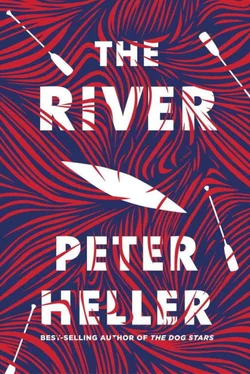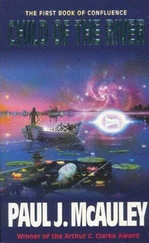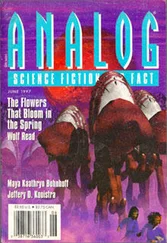Without a word Wynn went to the stern and found the cam straps and began lashing in the food and clothes barrels. He buckled in the extra lifejacket. Carrying one was required on certain rivers and it had become a habit. He ran a strap through the waterproof soft case of their rifle and snugged it tight, just ahead of the stern thwart, right side. He made sure the clips that opened the bag were easily accessible. He wasn’t sure why. He just felt better knowing he could grab the gun fast.
They had brought the rifle to shoot caribou and to protect against bears near the bay. Nobody used to, but the warmer winters had changed everything. With the ice regime changing, the lean summer season for the polar bears was extended, and hungry bears in early fall were known to rove upriver looking for food, sometimes as far as fifty or sixty miles. Some were near starving and would eat anything that moved. There were also wolves and black bears, though neither Jack nor Wynn seriously thought of those as a problem. The unspoken reason for having a gun was that neither felt comfortable going for a long trip into the northern wilderness without one.
When Jack’s mother died, Jack’s father, Shane, stopped talking. It wasn’t like Jack was missing much—his father had been a man of few words, unlike his father’s brother, Lloyd, on the next ranch over, who could talk the bark off a tree. But later, over the years as his voice returned, Shane had told Jack stories about Uncle Lloyd, and whenever they were all together Jack could see how much his dad loved him. Shane told Jack that growing up he had not resented his older brother’s volubility, he had admired it. They were Irish twins, eleven months apart, and Shane said he would often find himself in a circle of mutual friends listening to Lloyd tell a story he knew was wildly embellished. Lloyd might be recounting a ride through the Devil’s Thumb lease with their cousin Zane, intoning, “Well, Zane, you know he’s a gangly sonofabitch, shot up so fast in high school they had to climb halfway up his backside to find a place to hang his asshole.” Laughter. “He was riding ahead of me on the trail, turned back and was trying to tell me some goddamn thing, and he hit the limb of this cottonwood and it knocked him out of the saddle. Well, you know he may not be that smart but he’s quick as a snake in a boot and he grabbed that branch and he was hanging there squirming and I just rode on under and picked him up. There we were, riding together like newlyweds. He was half up on Shirley’s neck and I squeezed him around the waist and said, ‘Well, this is cozy. How’s that saddle horn feel…’ ” Laughter.
Shane said it wasn’t quite the way it had happened but it was somehow more true to the moment than if Lloyd had just told it dry, and it was way more fun. Jack did notice one thing, and it was something he loved about his uncle: Lloyd never embellished the bones of a hunting or fishing story. The fish never got bigger nor the rack of the bull elk wider. Inches, feet, miles, weather, were all surprisingly accurate. Shane said that Lloyd had once told him that a great storyteller had to know when never to lie. “Hunting and fishing’s so much fun,” he said, “only a pissant needs to lie about it.” Jack could see that in all his father’s dealings with Lloyd—splitting up the ranch after their parents died, sharing the lease, covering for each other in calving time, and coping with irrigation—Shane trusted his brother more than any other person on earth. Jack knew that Lloyd made life more fun, it was that simple, and without ever compromising the dead seriousness of it. That was a person to ride the river with.
Jack’s father may have blamed himself and gone just about mute, but so did Jack—blame himself. That morning he had insisted on acting like a big man and taking up the rear. He’d never done it before. His gray, Duke, was much more athletic than sweet lumbering Mindy—if it had been him behind his father when BJ balked, Duke would have kept his footing. It was his fault for trying to be bigger than he was. His damn fault. In truth, at eleven he was already a constitutionally modest kid, and the accident just reinforced his aversion to drawing attention to himself or overreaching. He liked to be good at what he did—both his mother and father had instilled the value of that; there was nothing really more important other than treating animals and people with decency and respect—but not a lot of people had to know about it. What good did bragging do anyway? He had a few good friends who respected him and would do anything for him. Why did anyone else need to be impressed?
When he opened the envelope that said he’d gotten into Dartmouth, his father didn’t hoot or take him out to a celebratory dinner at the Tabernash Tavern; he looked at him with an odd expression, half pride, half sorrow, and said simply, “Your mother would be over the moon.” Over the moon. She was over the moon. It was almost exactly how he had been thinking of her these past years. When he walked halfway to the horse barn on a cold night and stood in the frozen yard and watched the moon climb over Sheep Mountain, he sometimes whispered, “Hi, Mom.” He wasn’t sure why, it just seemed that if she were to be anywhere it would be there. Maybe it was because his favorite book when he was very little was Goodnight Moon. She had read it to him over and over, and after she drowned he kept the battered copy on the little shelf above the bed and sometimes fingered the worn corners and flipped through it before he slept.
And it was books he took solace in. When he wasn’t out on the ranch, or riding the lease, or fishing. He eschewed team sports—he felt like they were a bunch of kids showing off—and he kept most of his reading to himself. Not even his English teachers knew the depths of his growing erudition, but the school librarian did, as did Annie Bosworth down at the Granby Public Library. They knew. They also knew his instinctive modesty and shyness, so they encouraged him with guidance but never made a big deal of his extraordinary voracity, nor of his range. They simply kept him in books.
He and Wynn had that in common, a literary way of looking at the world. Or at least a love of books, poetry or fiction or expedition accounts. Wynn was a straight-up arts major who took a lot of courses in comparative literature, particularly French. Jack was engineering and supremely comfortable in the language of mathematics, but for the rest of his courses he took anything to do with poetry or novels, and he had especially adored American literature from the beginning. They had met even before the first day at school, on a freshman orientation trip, a four-day backpacking romp through the White Mountains. He and Wynn had rambled way out ahead of the group and talked nonstop, about canoes and rivers and climbing, but also about how Thoreau did his laundry across the pond at Emerson’s house and how Faulkner was such a terrible drunk and womanizer and whether “Spring and All” was as good and important as “The Waste Land.” Jack was startled. He’d never had conversations like this with another kid, and he’d never imagined anyone else his age would love to read as much as he did—especially a guy who seemed to be able to more than handle himself in the woods. They were best friends from that first day, and whatever else they were doing, they never went very long without trading books.
One thing they talked a lot about on that first hike was Louis L’Amour. Once they’d discovered they were both avid readers and had gotten over their shyness about it they began to reel off authors and books, what was good about them and bad, what they loved. It was a breathless conversation, and not only because they were hauling ass down the north side of Mount Madison. And then they were both relieved to find that the other was not at all a literary snob. The classics and the canon were one kind of animal, but sometimes a trashy yarn that ran headlong with no pretensions was just as good. Or at least as fun. And so they could admit that they’d both read probably every Louis L’Amour pulp western extant, even the ones that mysteriously appeared years after he died. Wynn read them because the aspen forests, the sage meadows, the sandrock canyons of the West were as exotic and enticing as anything he could imagine. And because the characters rode horseback through that landscape, and splashed across ice-rimed creeks, and pushed through herds of elk, and calmed their quivering horses when they picked up the scent of a lion or the blood trail of its kill. The heroes made camp in the ferns beside a stream spilling from snowcapped peaks and rubbed down their horses with halms of wheatgrass, and they kept their fires small and “smokeless” so they didn’t alert their enemies. Jack read them because everything in them was familiar but shiny-familiar, not quite like the life he knew but the way things ought to be. Especially the part about killing all the bad guys and getting the girl.
Читать дальше












